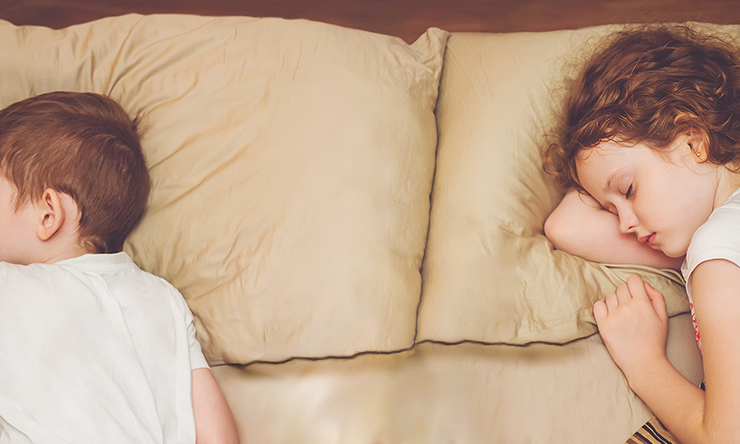Get kids on a back-to-school sleep schedule
While kids enjoy staying up – and sleeping in – late during summer break, it can be difficult to return to a normal sleep schedule when school is back in session. A pediatric sleep expert at Baylor College of Medicine and Texas Children’s Hospital explains why students need plenty of sleep and the importance of good sleep habits.
“In general, kids who have insufficient amounts of sleep are likely to have decreased alertness and productivity,” said Dr. Sonal Malhotra, assistant professor of pediatrics – pulmonary and sleep medicine at Baylor and Texas Children’s. “We know that lack of sleep impacts academic performance and can lead to behavioral problems in children and adolescents. They can present with daytime inattentiveness and hyperactivity, often leading to a misdiagnosis of ADHD. Once we fix poor sleep habits we see those issues resolve.”
Malhotra said it is first important to know the recommended hours children of all ages should sleep per night:
- Ages 3-5: 10-13 hours.
- Ages 6-12: 9-12 hours.
- Ages 13-18: 8-10 hours.
While going to bed and waking up earlier is challenging, Malhotra offers a few recommendations to get students back on the right sleep schedule:
Set a bedtime and wake-up time goal
Malhotra advises parents or students to establish a goal bedtime and wake-up time 2 to 3 weeks before school begins. She recommends advancing the new times in 30 minute increments in the morning and night to ease into the school year.
“Figure out what time you have to wake up for school and work backward to see what time you have to go to sleep to achieve a sufficient amount of sleep. Slowly work toward that goal over the next couple of weeks,” Malhotra said. “For example, if you’re waking up at noon, wake up at 11:30 a.m. and then earlier the next day.”
Keep a consistent sleep schedule
Catching up on sleep during the weekend is common for students, but Malhotra said the more effective option is to remain on a consistent sleep schedule during the weekdays and weekends. This improves sleep quality and ensures that you are allotting enough sleep time into your children’s schedule.
“We find that during the weekdays kids are getting insufficient amounts of sleep and then catching up on all of their sleep over the weekend,” Malhotra said. “I try to teach the importance of good quality of sleep, quantity of sleep and consistency of sleep.”
Limit screen time before bed
A rule that applies to both children and adults, Malhotra advises about an hour before bed to turn off or put away electronics, such as TV, video games and cell phones. If TV noise is needed to sleep, she recommends instead using a white noise machine or downloading an app that produces noise without the blue light. Implementing more relaxing activities such as reading, taking a warm bath or sitting in dim light before bed also will make it easier to sleep.
“Excessive screen time before bed can prevent you from falling asleep. To avoid temptation, remove all electronics from the bedroom.” Malhotra said. “Once you get into that habit of putting electronics away at a young age it will be easier to do as an adult. It is important for parents to set a good example and have the same rules for themselves.”
Remind students that sleep and performance go together
It is challenging to find a schedule that can incorporate the correct amount of sleep into a busy student’s life when they are balancing homework, studying and extracurricular activities. Malhotra notes that lack of sleep can inhibit being alert and productive for school or sports. She recommends trying to schedule activities earlier throughout the day so there is time to fall asleep and wake up at an appropriate hour.
“Our goal is to teach parents and children how lack of sleep can reduce productivity and efficiency during the day, making it harder to effectively complete tasks,” Malhotra said. “It’s important to know that poor sleep can negatively impact you mentally, physically and emotionally. Finding a good sleep routine and allotting time for sufficient amounts of sleep can simply make you think and feel better.”










